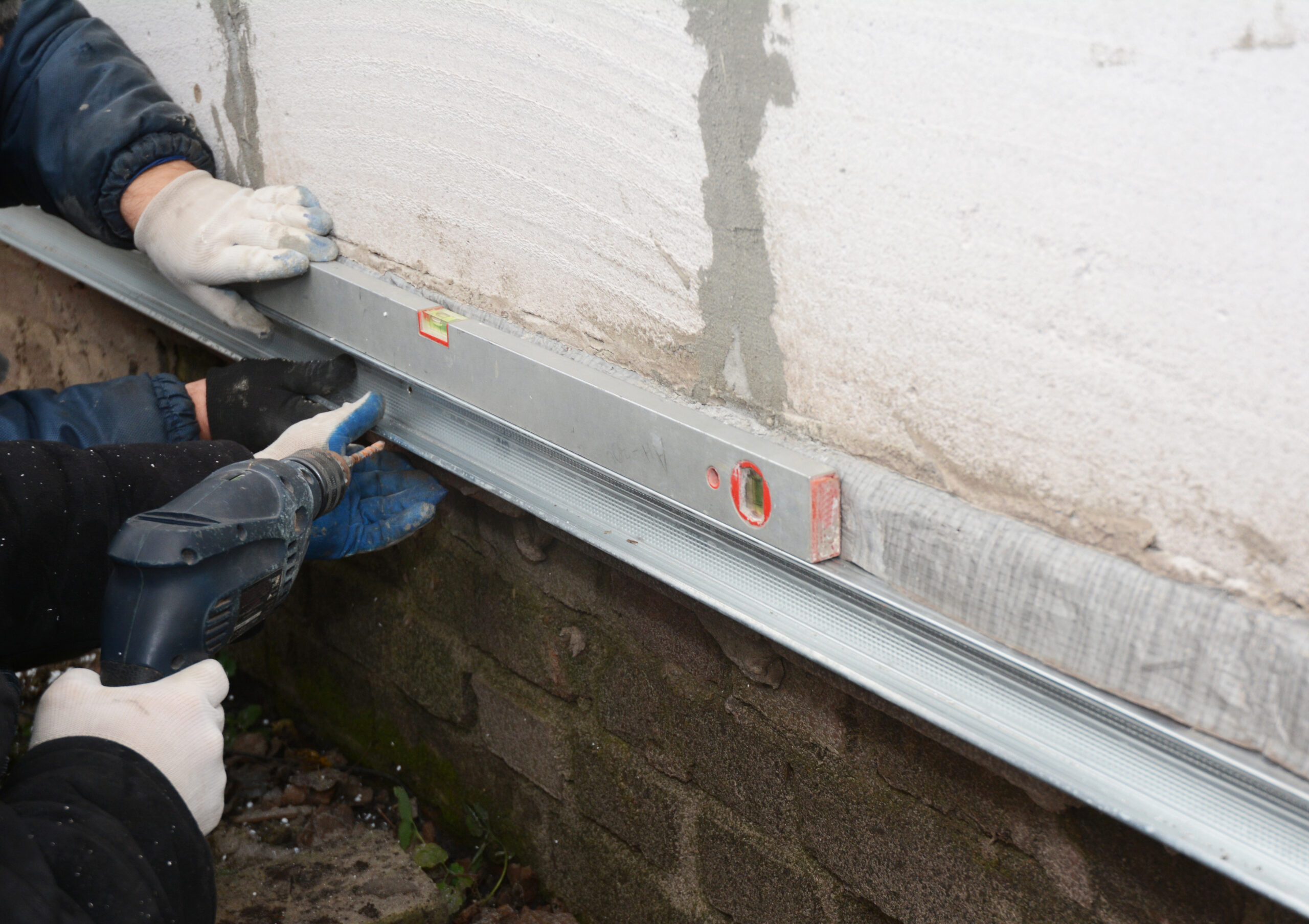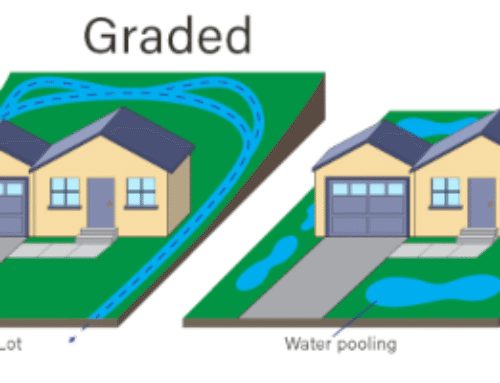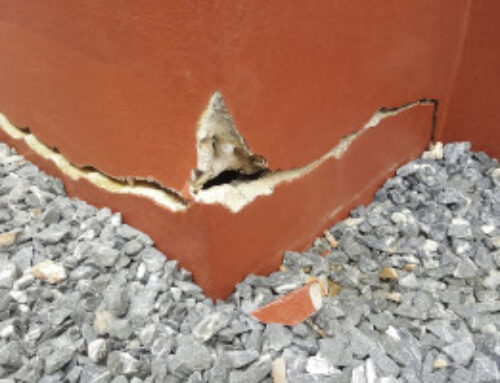Whether someone is purchasing a home or finding one for rent, the first and most important aspect they will notice is its structural stability and strength. If you are a homeowner listing your property for sale, the presence of foundation problems can be a huge hurdle.
These issues not only raise concerns about the property’s safety but also impact its value and buyer appeal in the competitive real estate market.
These challenges naturally lead homeowners and potential buyers to ask some difficult questions:
How do foundation problems affect a home’s value, or is selling a property with these issues even possible?
Let’s build an understanding of how foundation problems impact your property’s worth and the intricacies of the selling process in the local real estate market.
What are Foundation Problems?
Foundation problems refer to the issues that affect the stability or structural strength of a building’s base. Any damage to this can impact a property’s physical structure, including the foundation, walls, and framing.
Here are some of the most common foundation problems you may encounter as a property owner:
1. Floor Sagging
Uneven floors are a key sign that the structural support is compromised. Foundation settlement makes supporting piers shift, leaving floor joists without adequate support. Meanwhile, moisture promotes rot and mold degrades the wood, leading to dips and slopes.
2. Cracks
Foundation shifts exert stress on walls and cause interior cracks. Vertical ones often mean general settling, while diagonal ones point to uneven movement. On the exterior, cracks in the foundation indicate pressure from the surrounding soil.
3. Sticking Doors and Windows
Foundation shifts warp the house frame, which can misalign the doors and windows. This misalignment causes doors and windows to rub against the jamb and makes them difficult to operate.
Do Foundation Problems Affect a Home’s Value?
The repercussions of the foundation go beyond structural stability. These problems can significantly decrease the financial value of your property, making it more challenging to sell. Here is how much foundation issues can lower a home’s value:
- Real Estate Marketability: Foundation problems can severely affect your house’s marketability and value. The thought of dealing with costly structural repairs often makes potential buyers completely uninterested. This shrinks the pool of people who might consider purchasing the property. These issues make a house less appealing compared to similar properties that don’t have these structural weaknesses.
- Average Value Loss Estimates: Any damage to your home’s structure, especially the foundation, reduces its financial worth. As per a report by ABN-AMRO, a poor foundation in the house advertisement can reduce its sales value by 12 percent. Appraisers, who determine the fair market value, will factor in the cost of repairs and the reduced buyer demand.
These factors lead to a lower appraisal, which makes it hard for sellers to achieve the desired price. This can be particularly challenging for buyers relying on mortgages.
Leaders are hesitant to finance properties with known structural issues. Foundation problems raise concerns about the long-term stability of a business and make it a risky investment.
What Buyers, Appraisers, and Inspectors Look For
There are typically three key stakeholders involved in evaluating a property. First, the buyer seeks a sound investment, and then the appraiser objectively determines its market value through inspection and market comparison.
Lastly, the home inspector thoroughly checks for structural integrity, safety issues, and general condition.
These individuals utilize some specific techniques to decide how much foundation issues will affect a home’s value:
Common Red Flags They Spot
Here are some common danger signs or red flags that buyers, appraisers, and inspectors would look for during their evaluation of a property’s foundation health.
- Visible Cracks: They will carefully examine the foundation walls (both inside and outside), as well as interior walls and ceilings, for cracks. The size, direction (horizontal, vertical, stair-step), and location of these cracks can suggest the nature and seriousness of any foundation movement.
- Uneven or Sloping Floors: A noticeable slant or dip in the floors throughout is a sign of potential foundation settlement. They might visually inspect or even use a level to assess the degree of unevenness.
- Water Intrusion and Moisture: Any evidence of dampness, water stains, mold growth, or a musty smell in the basement or crawl space suggests that water is entering through foundation cracks or due to poor drainage.
- Bowing or Leaning Walls: Basement or crawl spaces that appear to be pushing inward or leaning can indicate pressure from the surrounding soil (hydrostatic pressure). This can compromise the structural integrity of the foundation.
How the Appraiser Evaluates the Impact
Appraisers evaluate how much foundation problems affect a home’s value by considering several key factors:
- Physical Deterioration: Foundation issues are classified as a form of incurable physical deterioration. These damages reduce the overall lifespan and structural integrity of the property, leading to a lower valuation.
- Overall Condition: They assess how the foundation problems have affected other parts of the house, such as the walls, floors, and roof. Secondary damage resulting from foundation problems can further diminish the property’s marketability.
- Repairing Cost: Appraisers will research and estimate the foundation repair costs. This anticipated cost directly influences their appraisal, as a potential buyer would consider this expense in their offer price.
- Comparable Sales Analysis: Professionals will examine recent sales of comparable properties in the locality. If any of them had disclosed foundation issues and a lower sale price, it would have a negative impact on the subject property’s value.
- Market Reaction: An in-depth analysis of how foundation issues affect buyer behavior and sale prices in the local market. Properties with such issues generally experience reduced demand, longer listing times, and ultimately sell for less.
Should You Fix Foundation Issues Before Selling?

Real estate agents typically advise fixing foundation issues before selling to achieve higher sales prices. Addressing these problems enhances your property appeal, overcoming a major buyer concern that devalues homes.
However, the financial benefit of repair relies on the balance between the cost of the fix and the subsequent increase in the home’s market value.
Repair Costs vs. Value Restored
Repair cost refers to the total expenses involved in fixing the foundation problems. Whereas, value restored, the increase in your home’s selling price that you can expect after the foundation repairs are completed.
What makes them relevant to the selling process is whether the “Value Restored” is greater than or at least comparable to the “Repair Costs.”
- Value Restored > Repair Costs: This is the ideal scenario, as investing in repairs can lead to a higher profit on the sale of your home.
- Value Restored = Repair Costs: Even if you do not make a significant profit on the repair costs, fixing the foundation can make your home more marketable and prevent price reductions from buyers.
- Value Restored < Repair Costs: In case of extensive and costly foundation issues, the cost of repair might outweigh the potential increase in selling price. In such situations, it is better to sell the house at a lower price, with full disclosure of the problems.
Foundation Repairs and Their Impact on Value
The benefits of foundation repair extend far beyond marketability and value. A repaired foundation supports a higher appraisal, as it demonstrates the home’s stability and reduces perceived risk for buyers. This assurance can be helpful in securing financing and achieving a favorable valuation.
Moreover, fixing foundation problems is a preventive measure against further deterioration. It stops the chain reaction of stress and movement that can cause secondary damage to walls, floors, and roofs.
It increases buyers’ confidence that all the structural issues have been resolved professionally. In short, it is a great way to safeguard your investment and attract serious buyers.
Legal and Disclosure Requirements
It’s natural to present your property as the best option to the buyers. But it is also crucial to resist the urge to conceal any existing issues. In many states, it is a seller’s legal responsibility to mention any known material defects, including foundation problems, in the sales agreement or a separate disclosure form.
Hiding known problems is a serious violation of your legal and ethical responsibilities as a seller. This failure to disclose can have significant negative consequences.
Risks of Hiding Issues
Lawsuits: In many jurisdictions, sellers are legally obligated to disclose known property issues. If a buyer finds a hidden foundation problem after purchasing, they may sue the seller for misrepresentation or fraud, seeking compensation for repairs and damages. Furthermore, the U.S. Department of Housing and Urban
Development (HUD) states that people who have been found to have violated housing-related laws can be charged with a civil penalty of $21,663 to $108,315.
It is important to note that the amount of penalty may depend on how foundation problems have affected a home’s value and your particular state.
Lastly, if a buyer discovers a foundation problem before the sale closes and the seller isn’t ready to fix it, the buyer has the legal right to terminate the deal.
How to Protect Home Value if You Suspect Foundation Issues
If you have noticed some cracks or sloping floors in your house, don’t panic. Taking proactive steps can help protect its value despite potential foundation issues.
Let’s see how you can navigate this situation.
Tip #1: Get a Structural Engineer Inspection
Obtain a thorough inspection from a qualified structural engineer or a reputable foundation repair company. Their expert assessment will give you an unbiased evaluation of the problem’s extent and recommend the necessary repairs.
Tip #2: Keep Records of Past Repairs and Warranties
Maintain detailed records of any previous foundation repairs, including invoices, permits, and warranties. It can reassure potential buyers that past issues were addressed professionally and may still be under warranty.
Tip #3: Work With a Knowledgeable Real Estate Agent
Partner with a real estate agent in your local market who has experience with properties that have had foundation issues. They can guide you through the disclosure requirements honestly and develop a marketing strategy that can mitigate value loss.
FAQs
Restore Your Home’s Value Without Breaking The Bank
Foundation problems and associated damages can put a strain on your property’s value. However, it is not impossible to overcome it. Selling a house with foundation problems is indeed possible with the right approach. The key lies in being transparent and honest with potential buyers about the existing conditions.
Get professional assessments, understand possible foundation repair options, and work with knowledgeable real estate agents to handle these situations in the best possible way.
The first step towards understanding your home’s foundation concerns is a detailed professional assessment. Get in touch with Crossroads Foundation Repair today for a thorough inspection and expert guidance.
Our experts can provide insights to make an informed decision and take the right steps to protect your property’s value.





